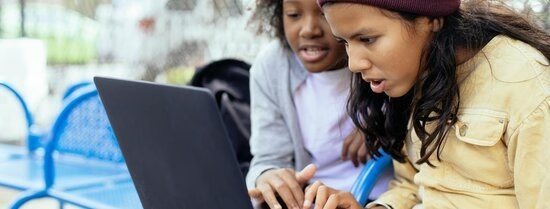Does it hurt less to put your hand in ice water while listening to your favourite music? It is one of the questions children can work on for themselves this summer. The Science Hub (Wetenschapsknooppunt) at Erasmus University Rotterdam (EUR) has developed a free, digital activity book that makes science accessible to children in groups 6, 7 and 8 of primary school. ‘We want to show that science is fun, and that it is something for everyone,’ says programme manager Rowan Huijgen.
Science during the summer holidays
The idea for the book originated at the Science Hub when they wondered how they could continue to engage young people in science even during the summer. During the school year, many children can already take advantage of the Science Hub's offerings. To keep all children (in Rotterdam) in touch with science, this book came about.
'Six weeks of summer holidays is quite long,' Rowan explains. 'And especially in Rotterdam, there are many children who don't go on holiday. Then it's extra valuable if they can still do something educational that inspires.'
For intern Ani Movses, an Educational Sciences student at our university, the book was the perfect internship assignment. She worked on the content for months. 'I wanted to make it approachable, accessible. That's why I made assignments that children can do independently, but also together with a brother, sister or parent,' she says.

'We want to challenge children to ask questions and be curious about the world around them.'
Ani Movses
Educational Sciences Student
Diversity of experiments and professors
The book covers all kinds of science fields: from psychology and sociology to medicine, economics and history. For each experiment, Ani sought contact with scientists from our university. 'Sometimes I literally translated their research into children's language,' she says. For example, the book features a trial by cultural sociologist Julian Schaap and physician-researchers Antonia Becker and Emy van der Valk Bouman, about music and pain. 'Children are allowed to hold their hand in a bowl of ice water while listening to music they like or dislike. Then they compare how long they hold it.'
Besides the experiments, the book also introduces the children to the researchers, including their favourite subject at primary school, their favourite ice cream flavour and what superpower they would like to have. Rowan: 'We want to break the stereotypical image of the scientist. Science is not just something of old men in white lab coats, it is of and for everyone.' Ani adds: 'And by introducing them to real scientists, we hope they can also see themselves in that role.'
Tested in the classroom
To check that the tasks are clear, Ani already tested some of the experiments in the primary school class where she works herself. 'The children really enjoyed it,' she recounts enthusiastically. 'They were rolling on the floor with laughter at the balance test, where you have to stand on one leg with your eyes closed.' The children understood the tasks well and were eager to do more of them.
With the activity book, the university mainly hopes to inspire wonder. 'We want to challenge children to ask questions and be curious about the world around them,' says Ani.
Available free of charge
The activity book is available entirely digitally and is distributed free of charge. 'This is a conscious choice,' Rowan explains. 'We want to work sustainably while ensuring that as many children as possible have access, including outside Rotterdam.' Through the Science Hub's website, social media and schools we work with, the book will be promoted.
This is the first time the Science Hub has released an activity book, but if it proves a success, a sequel is not ruled out. Rowan: 'It is an accessible way to show a large group of young children how fun and diverse science is. And as a university, we also want to make an impact in society in this way.'
Download the Science Hub's summer activity book (in Dutch)
- More information
Download the Science Hub's summer activity book.
The Science Hub EUR (WK|EUR) brings science to the classroom through inquiry-based learning. In thought-provoking, stimulating and research-based education - for pupils aged 8 to 18, their teachers and our partners - we strive for maximum talent development.
- Related content

